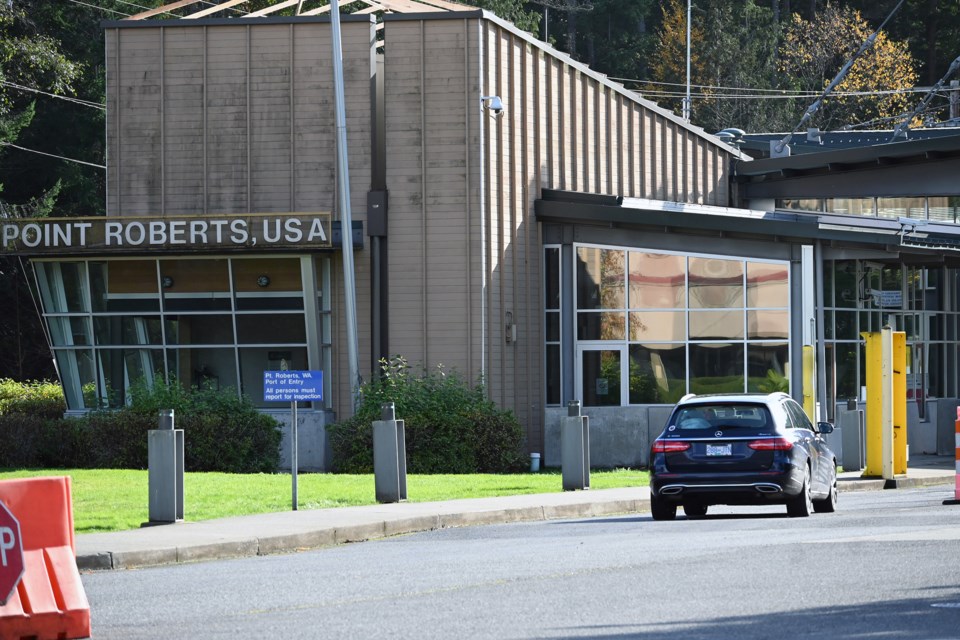An expensive PCR test to return home is keeping Canadians away from Point Roberts.
Since the U.S. border re-opened for non-essential travel last Monday, it’s been just a trickle of B.C. cars heading through the Boundary Bay crossing. Most of them are vacation property owners that showed up for COVID-19 testing at the Point Roberts Fire Hall on Wednesday morning (Nov. 10), one of two days each week the service is offered. The tests are returned, via Bellingham, 24 hours later and a negative result is required to get back to Canada.
Around noon on Wednesday (Nov. 10), the Optimist spent close to 30 minutes at the border and watched one car with B.C. license plates travel into Point Roberts. It wasn’t a whole lot different from when the U.S. crossing initially opened up.
“An Associated Press reporter from Seattle waited at the border from 8 a.m. to 9 a.m. on Monday to interview Canadians and during that hour three B.C. cars went through,” said Point Roberts Chamber of Commerce president Brian Calder. “Our hopes are building that we will see more traffic over this long weekend, but it’s only going to be people with homes down here.”
The cost of the PCR test, roughly $200, makes it a major deterrent for same-day visits and has resulted in business and tourism organizations across Canada pressuring Ottawa to drop the mandatory requirement. That’s the best hope of some level of normalcy returning to Point Roberts where nearly 50 percent of the 1.5 million pre-pandemic visits by Canadians in 2019 were for an hour or less.
For the past 20 months, Calder and Point Roberts fire Chief Christopher Carleton have pleaded to governments on both sides of the border to recognize the community’s unique geographical location and how it’s dependent on Canada.
That lobbying eventually resulted in loosening restrictions for residents to visit the Delta area for appointments and shopping, with testing and even proof of vaccination not required, however, there have been no exceptions for Metro Vancouver residents visiting Point Roberts.
“It the military mindset of the border patrol people,” added Calder. “It’s a one size fits all with no exception for anybody. Doesn’t matter how much sense it makes.”


